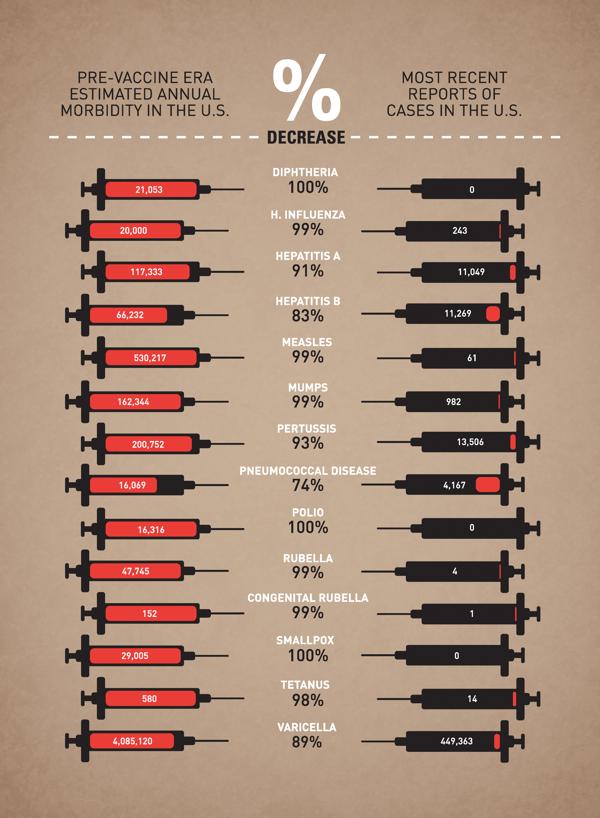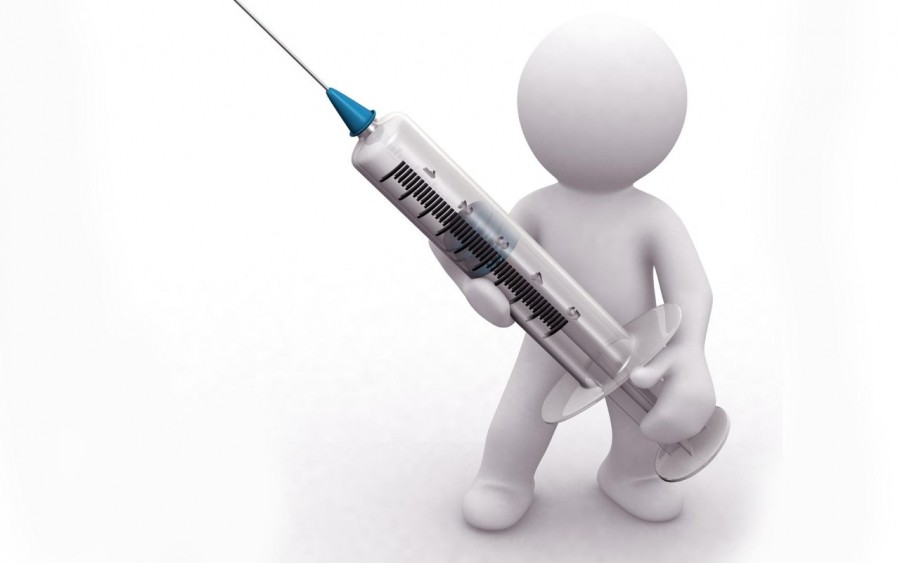Why you should get vaccinated
Why you should choose to get vaccinated
Five hundred thirty thousand two hundred seventeen. That’s the morbidity estimate of those the measles virus would have claimed per year prior to the development of its vaccine, according to the Centers for Disease Control and Prevention. With a 99 percent case decrease, measles affected only 61 people in 2010, and the US was on a steady track to eradication of the horrid virus. That is, until recently.

California just experienced an outbreak of measles, the number of cases skyrocketing from next to none to nearly 200 in a month and a half, according to the CDC. This huge jump is due to a lucky strain of virus that leapt from one unvaccinated person to the next, creating a sort of domino effect. But we live in the 21st century; why is this even happening? The greater the number of unvaccinated people there are, the friendlier we become with these diseases.
Polio, whooping cough, measles, mumps, chicken pox, influenza, and smallpox are all dangerous and deadly viruses known to cause seizures, brain damage, blindness, and death. The world battled with these diseases not too long ago, and luckily, developed vaccines for more than 15 of our deadliest killers. These great carnages of disease are something that many young parents fortunately never had to lay eyes upon, thanks to advances in medical science. Ironically, the very thing that saved this group of people from ever having to deal with these nasty diseases is the thing that many of them are rallying against.
Ask any medical professional, and they’ll tell you that vaccines are safe. Millions of children and adults are vaccinated each year and thousands of people take part in clinical trials to test a vaccine before the FDA licenses it. Serious precautions are taken before releasing a vaccine onto the market, and even after it’s licensed, the Vaccine Adverse Events Reporting System (VAERS) keeps track of any reported side effects and studies them. While the medicine can cause a reaction in some people, side effects tend to be mild with slight swelling or tenderness at the injection site. Doctors deem that the likelihood for a serious reaction is about one in a million, according to WhyIChoose.org.
Obviously, vaccines work—if they didn’t, people would still be dying every day from smallpox. So, why is it that parents are so reluctant to vaccinate their children? Many objections to vaccinations are based on false beliefs about vaccines and information from non-credible sources that have no scientific evidence to back up their theories. For instance, many followers of the anti-vaccine movement believe that vaccines can cause autism. There is no proof to attest to this claim; as far as doctors are concerned, autism is a neurodevelopmental disorder caused by genetics. Natural immunity also does not protect against vaccine preventable diseases, nor does breast milk. The majority of these theories have no proof of what they hypothesize.
Many who don’t believe in vaccinations also believe that vaccines are being forced onto people for the wrong reasons, such as making money. They believe that the push for getting vaccinated is nothing but a political agenda to make more money for the government. The politics of this matter creates an extreme paranoia among the anti-vaccine movement. Having a healthy dose of skepticism is a good thing, but the idea that every medical professional and politician out there who advocates for vaccines is just trying to get money out of you is nonsensical and ludicrous. Doctors are not trying to scam you, they’re trying to save your children’s lives.
Five hundred years ago, one in three children died before the age of five because of disease-related complications, according to NOVA. Today, we don’t live in fear of polio or of diphtheria as we once did because we are fortunate enough to have vaccines. According to the CDC, vaccines have prevented over 322 million illnesses and 732,000 deaths in the last 20 years. When it comes to vaccines, the benefits greatly outweigh the risks, and the proof is overwhelming. If we discontinue vaccines, diseases that we thought we conquered ages ago will once again become prevalent in our culture. It is imperative that we vaccinate ourselves and our children to protect against these atrocious diseases and eliminate them once and for all.

Position within Newspaper: Editor-in-Chief, Content Editor, Copy Editor
Graduation year: 2017
Favorite thing to do: I am a passionate writer and...







